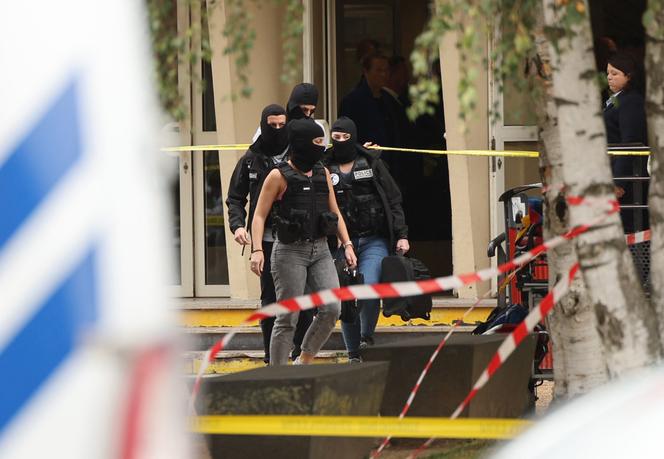


Contrary to what may have been reported in the first hours after his attack, Mohammed M., who killed a teacher outside the Lycée Gambetta-Carnot in Arras on Friday, October 13, is not Chechen. Born in Malgobek, Ingushetia, in 2003, he is Ingush. Ingushetia is a small Russian republic with a Muslim majority, which shares a common language, culture and destiny with its Chechen neighbor. Like many children of refugees, Mohammed M. comes from two decades of war and jihad in the North Caucasus.
"The two conflicts in Chechnya generated a strong wave of North Caucasian immigration to Western Europe, particularly in the direction of France," where the North Caucasian diaspora "is made up of 20,000 to 40,000 individuals, mostly from Chechnya," stated an October 2020 security memo from the Direction générale de la sécurité intérieure (DGSI, France's internal security agency) on "The North Caucasian Islamist movement and its threat in France" and which Le Monde had access to.
From the second Chechen war at the end of the 1990s to the birth of the Islamic State (IS) organization some fifteen years later, the Caucasian jihad has always exerted a strong fascination within the Islamist movement. In the 1990s and 2000s, two bloody wars of independence against the Russian army transformed Chechnya into a land of desolation and a jihadist testing ground.
During the First Chechen War of independence (1994-1996), the exploits of the Jordanian-Saudi Samir Saleh Abdullah Al-Suwailim, alias Ibn al-Khattab, who led a group of Arab fighters, popularized jihad on Chechen soil. The Second Chechen War (1999-2009) caused a shift: decimated by repression and plagued by "an absence of political perspective," the historic separatists "gradually lost control of the insurgency to the benefit of a regional jihadist dimension," noted the DGSI, which added: "While the Chechen independence rebellion, which emerged in the 1990s, originally had an exclusively local agenda, centered on opposition to Russian power, since the mid-2000s it has taken on a more universal dimension."
In October 2007, Dokka Umarov proclaimed the creation of the Islamic Emirate of the Caucasus to liberate the North Caucasus from Russian "miscreants" and establish Sharia law. He thus adapted Al-Qaeda's rhetoric to his own agenda, without officially joining the organization. "This proclamation has had the effect of encouraging the radicalization of some members of the Caucasian diaspora abroad," noted the DGSI.
You have 75.53% of this article left to read. The rest is for subscribers only.
